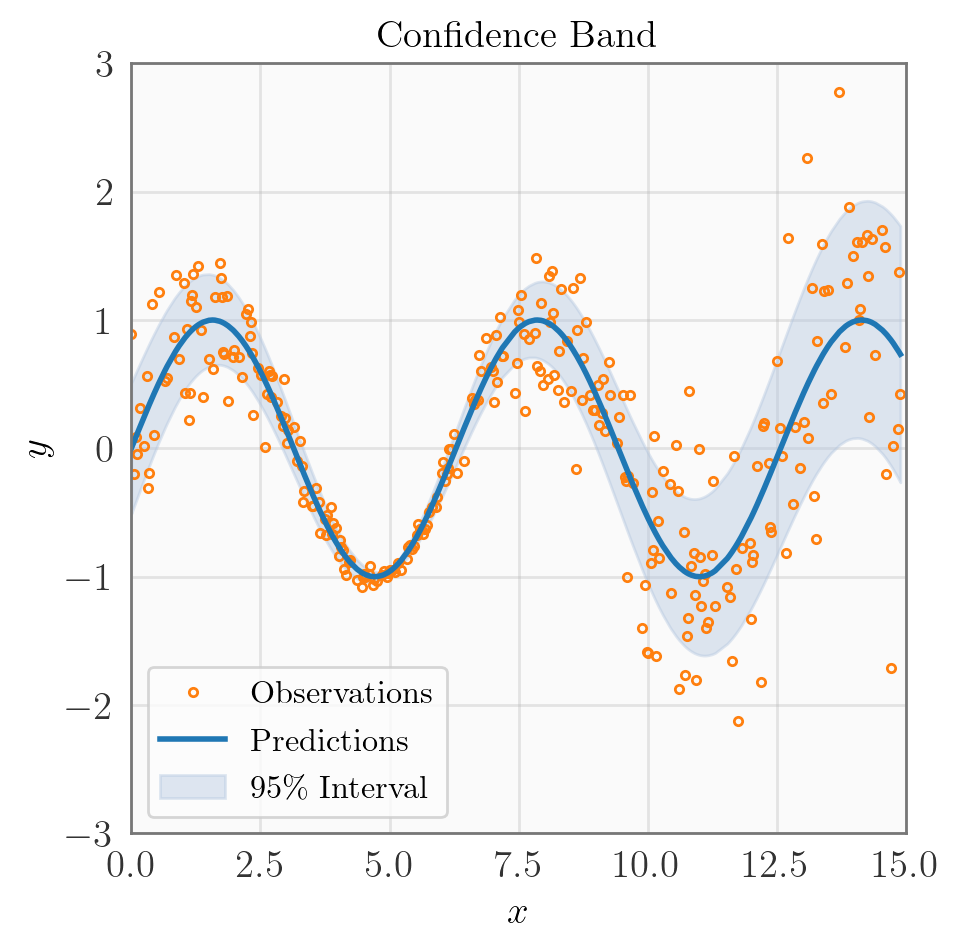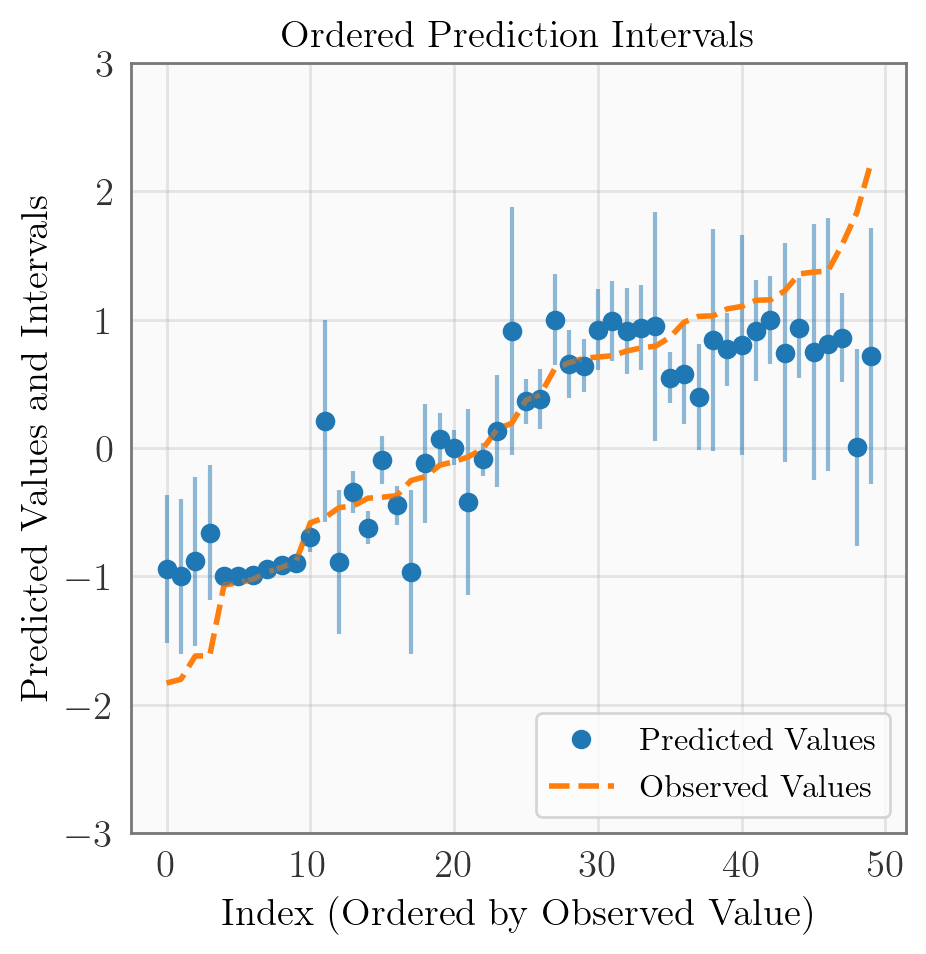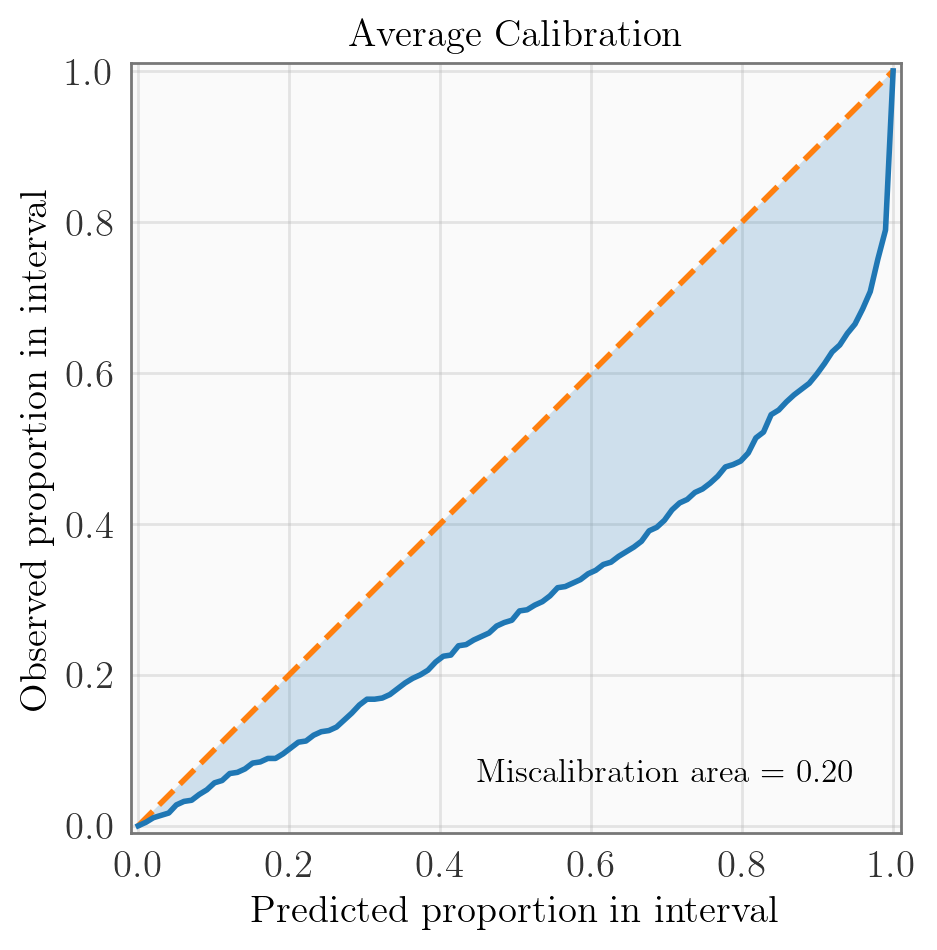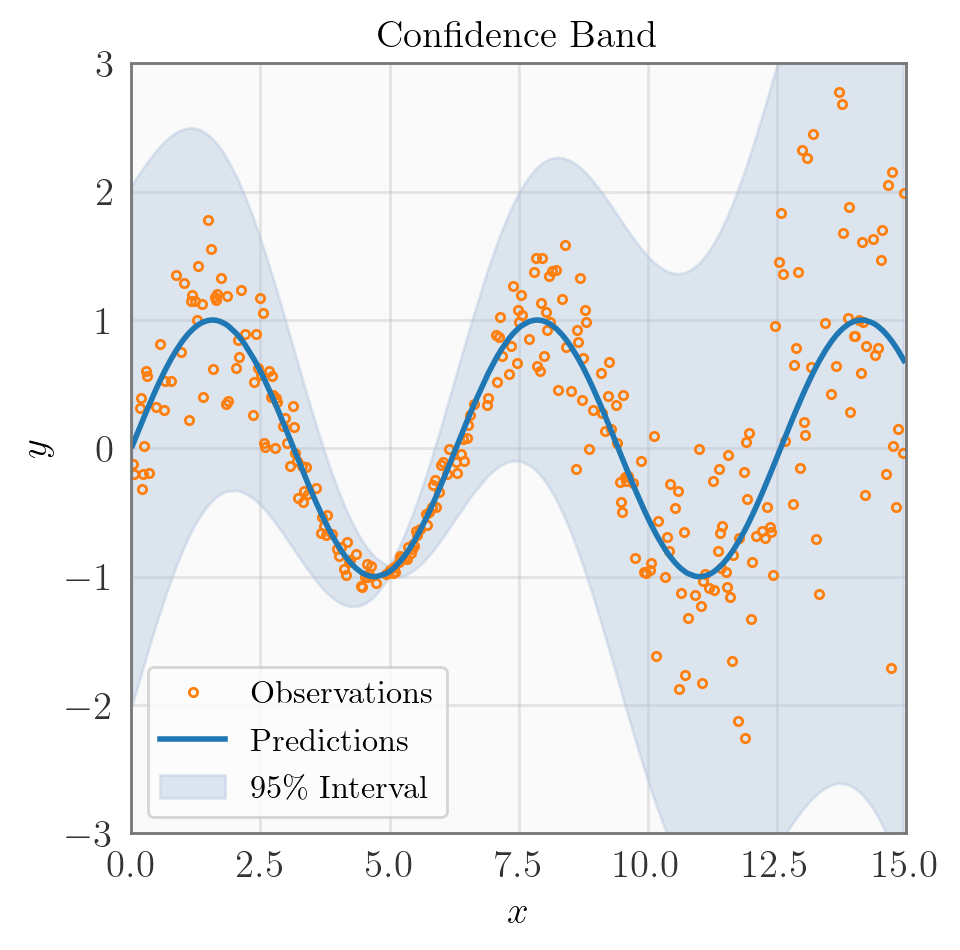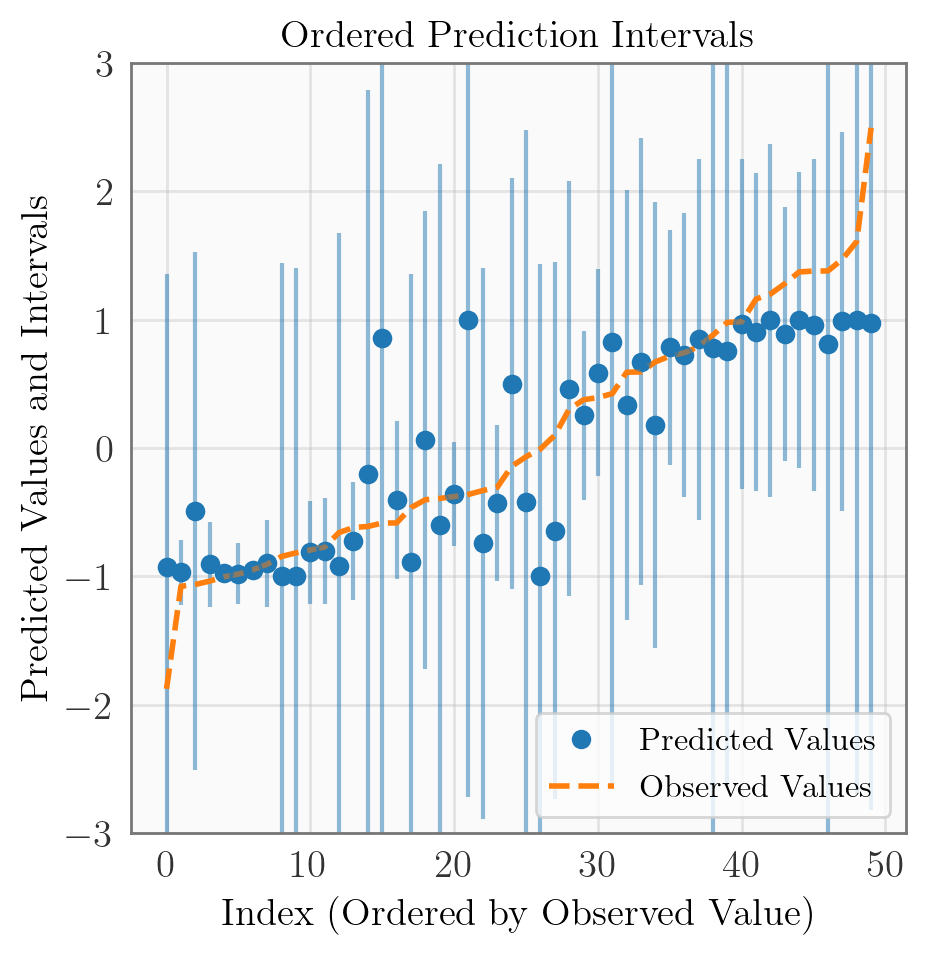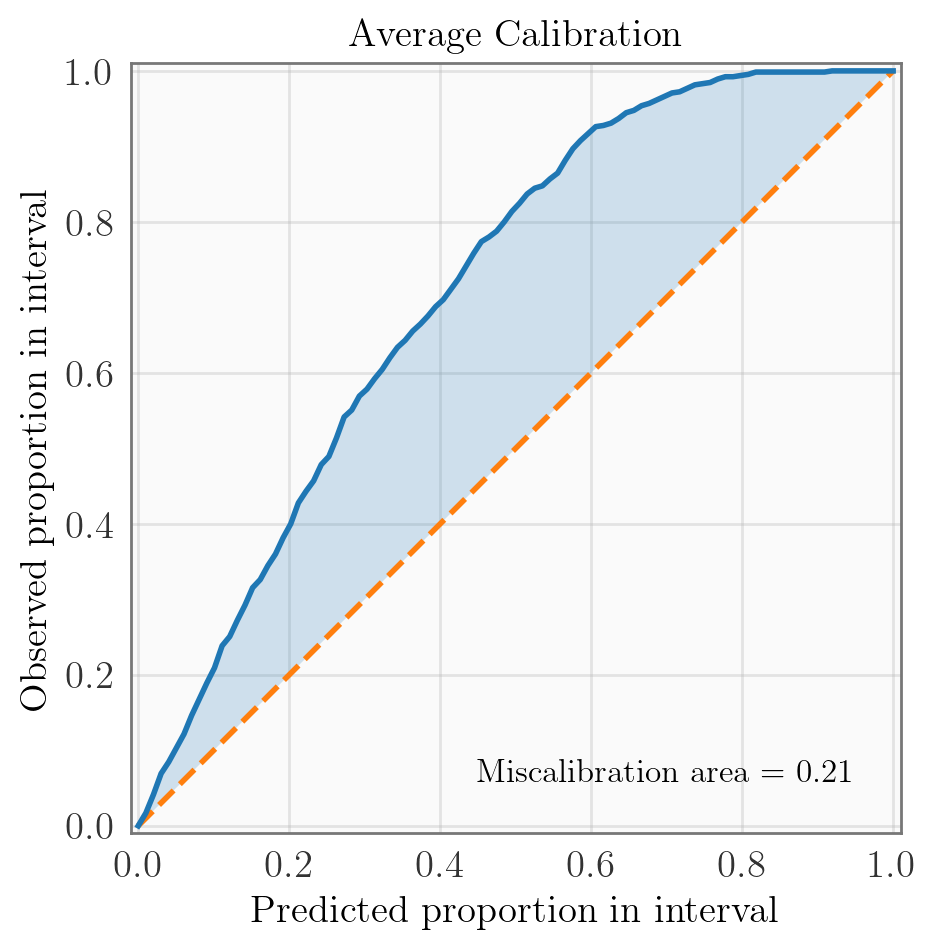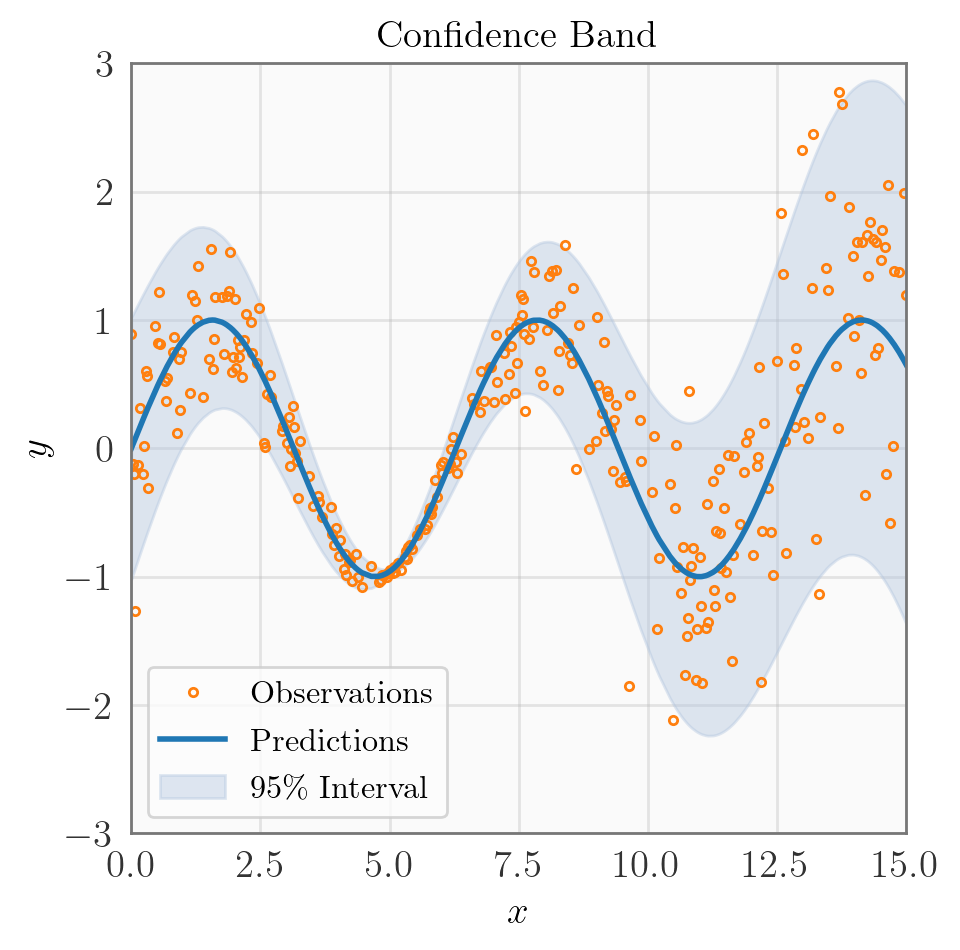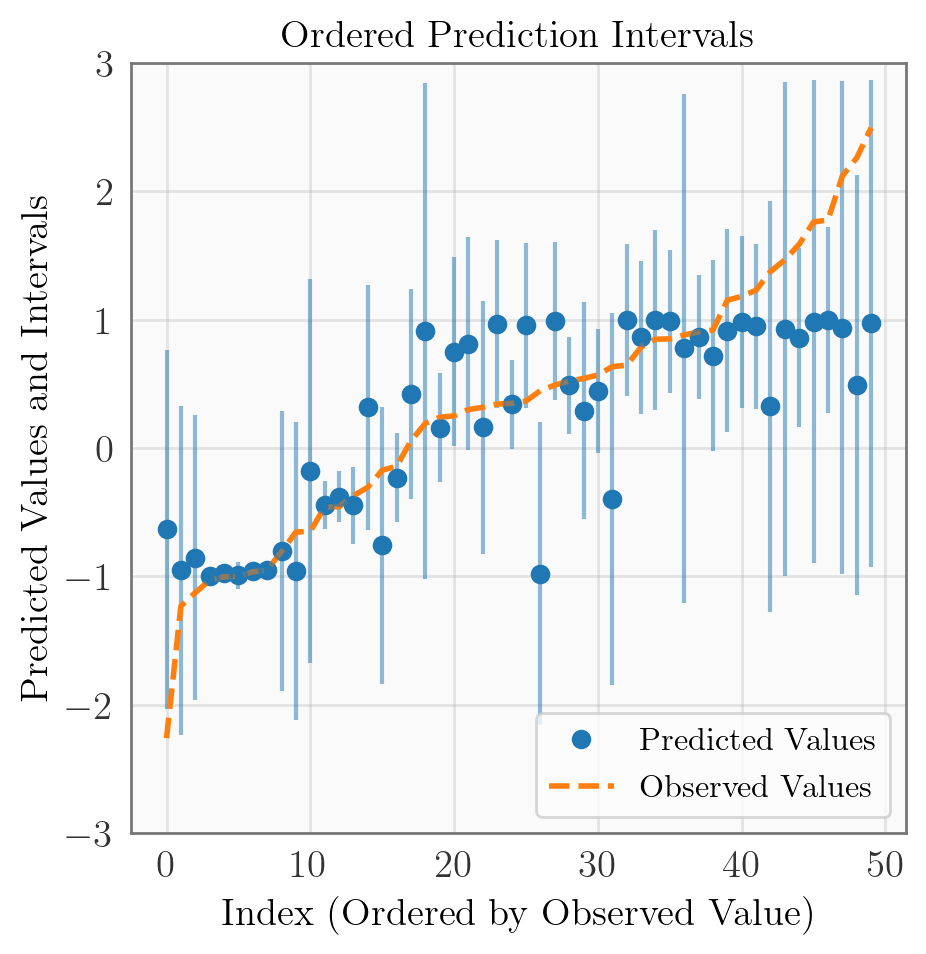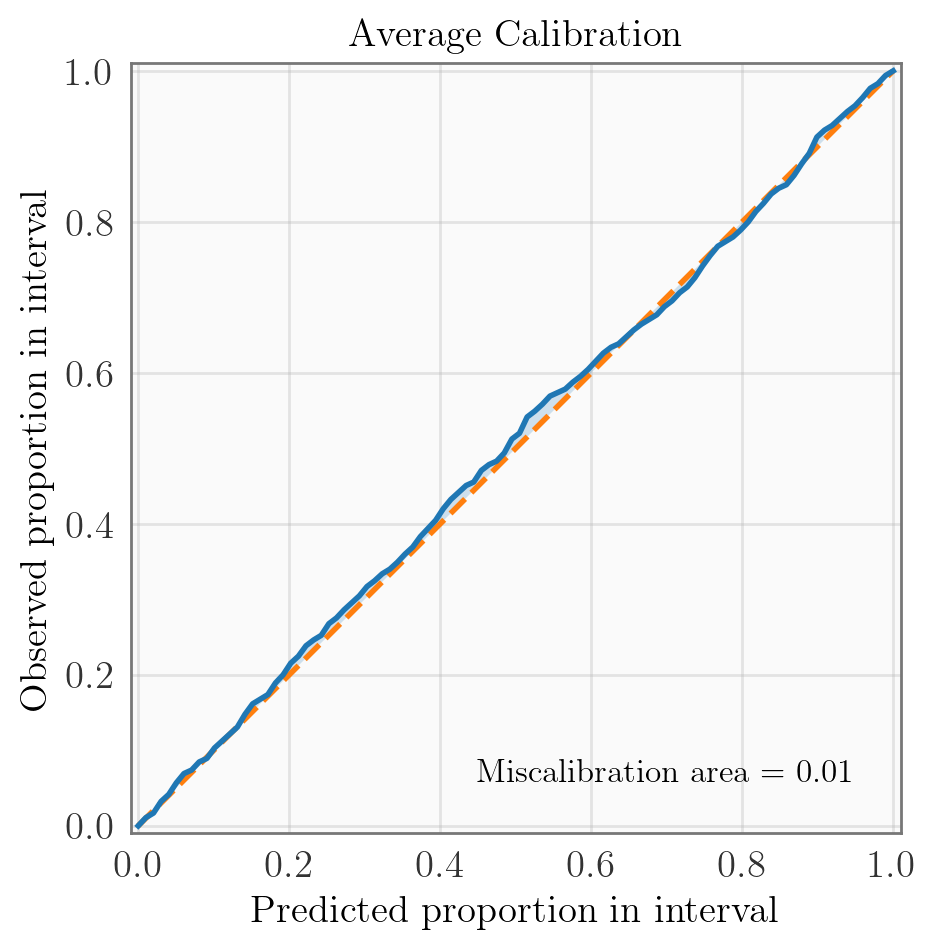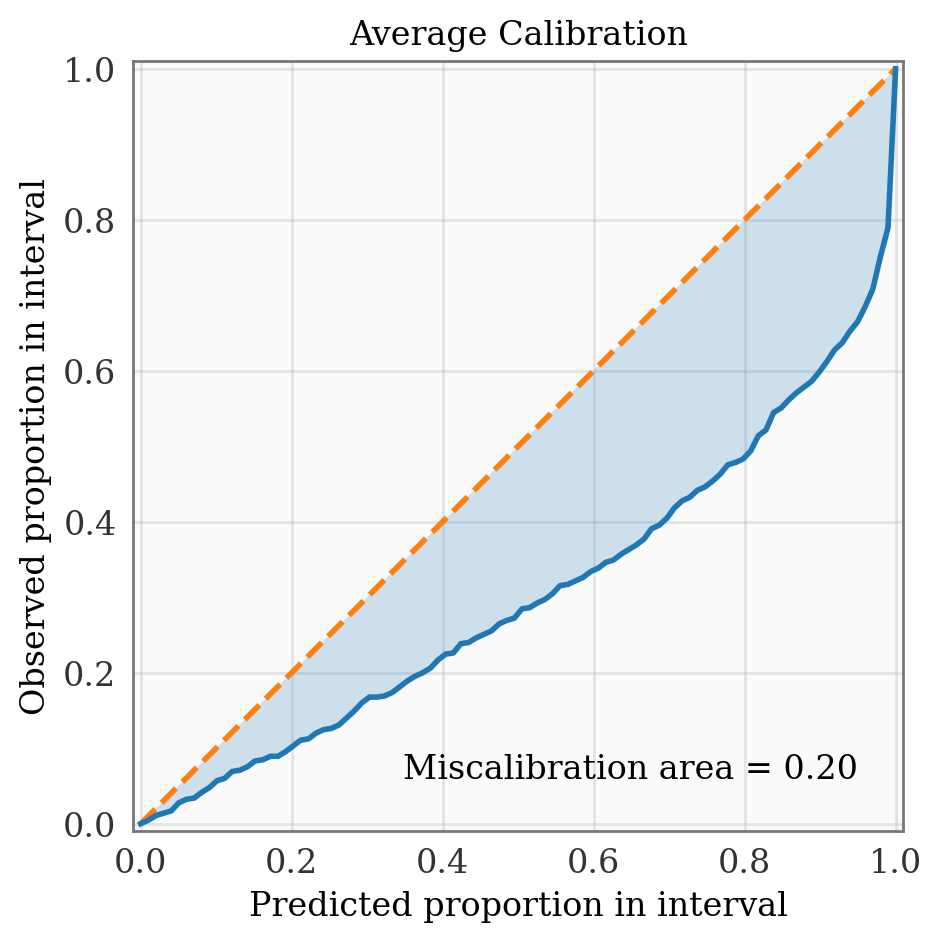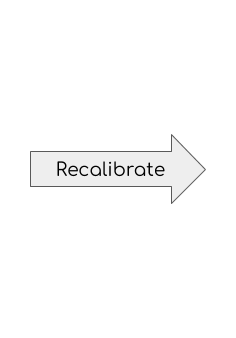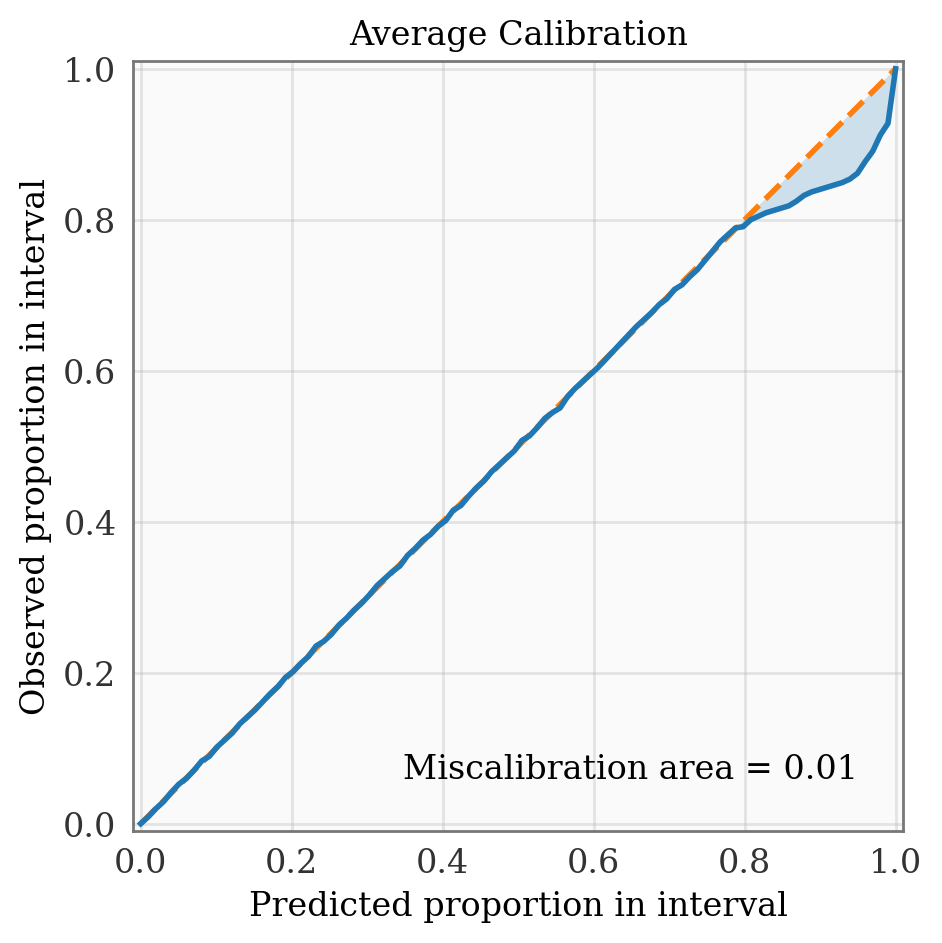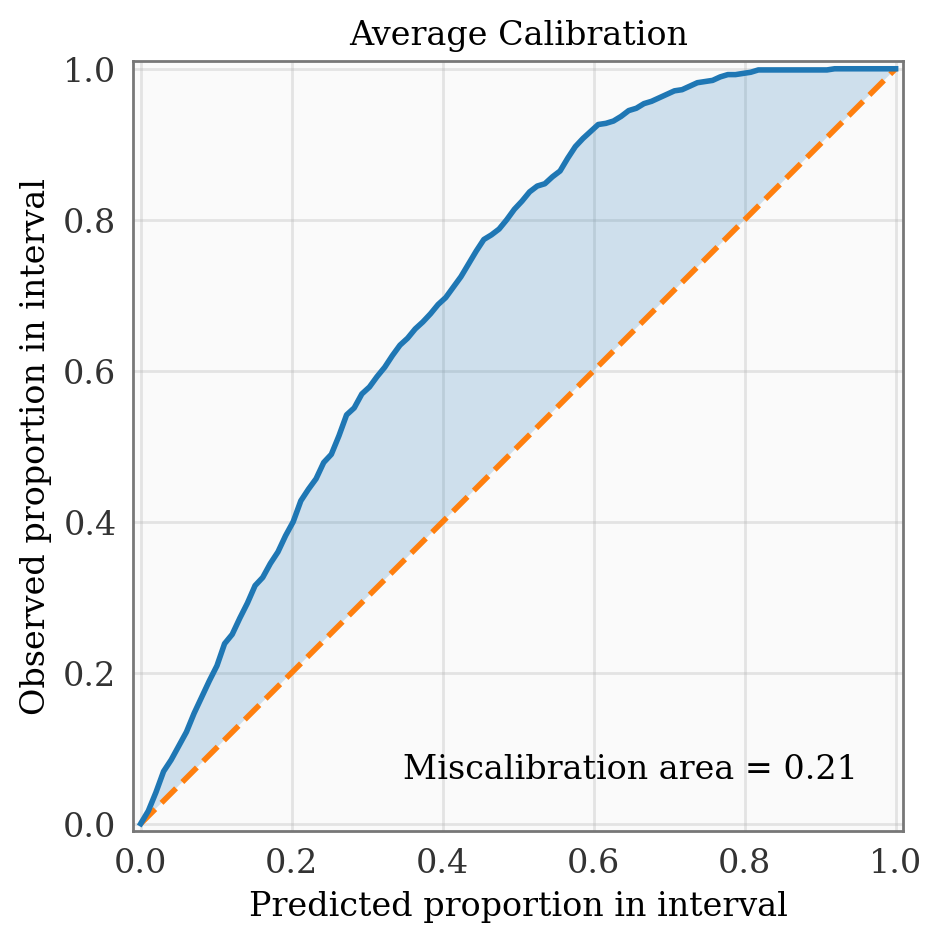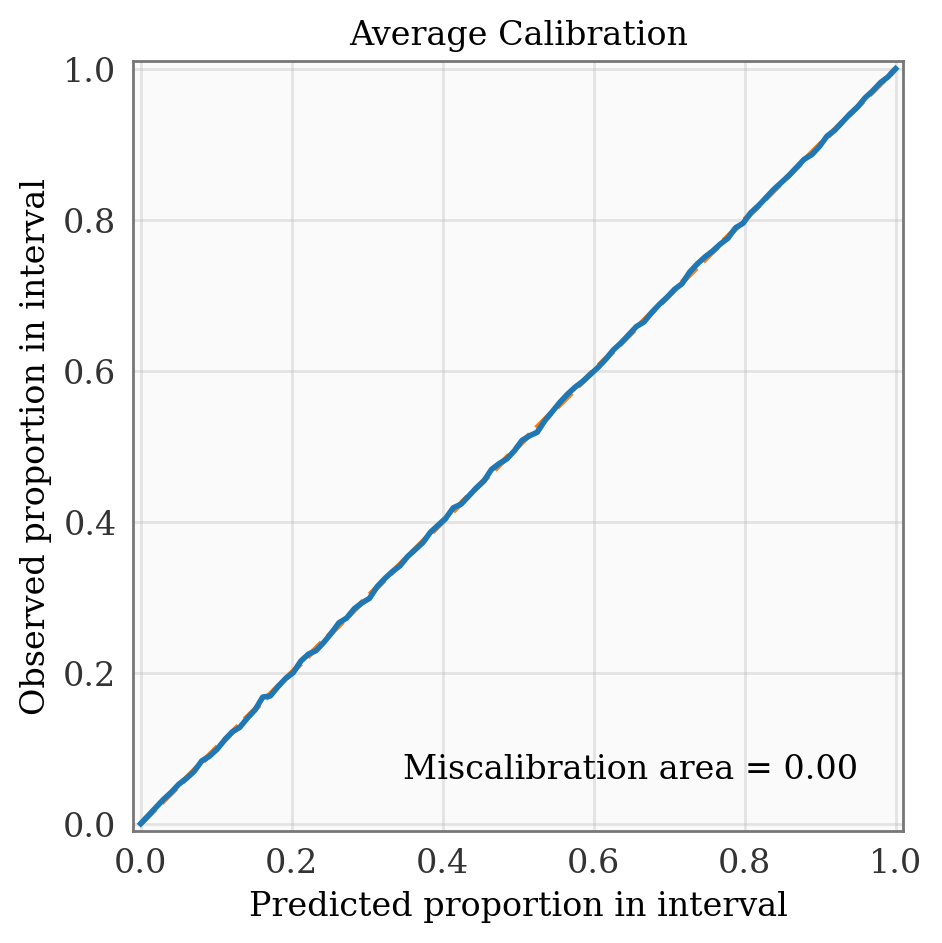Uncertainty Toolbox
A python toolbox for predictive uncertainty quantification, calibration, metrics, and visualization.
Also: a glossary of useful terms and a collection of relevant papers and references.
Many machine learning methods return predictions along with uncertainties of some form,
such as distributions or confidence intervals. This begs the questions: How do we
determine which predictive uncertanties are best? What does it mean to produce a best
or ideal uncertainty? Are our uncertainties accurate and well calibrated?
Uncertainty Toolbox provides standard metrics to quantify and compare predictive uncertainty estimates, gives intuition for these metrics, produces visualizations of these metrics/uncertainties, and implements simple "re-calibration" procedures to improve these uncertainties. This toolbox currently focuses on regression tasks.
Uncertainty Toolbox contains:
- Glossary of terms related to predictive uncertainty quantification.
- Metrics for assessing quality of predictive uncertainty estimates.
- Visualizations for predictive uncertainty estimates and metrics.
- Recalibration methods for improving the calibration of a predictor.
- Relevant publications and references on metrics and methods.
Uncertainty Toolbox requires Python 3.6+. To install, clone and cd into this repo, and run:
$ pip install -e .
import uncertainty_toolbox as uct
# Load an example dataset of 100 predictions, uncertainties, and observations
predictions, predictions_std, y, x = uct.data.synthetic_sine_heteroscedastic(100)
# Compute all uncertainty metrics
metrics = uct.metrics.get_all_metrics(predictions, predictions_std, y)This example computes metrics for a vector of predicted values
(predictions) and associated uncertainties (predictions_std, a vector of standard
deviations), taken with respect to a corresponding set of observed values y.
Uncertainty Toolbox provides a number of metrics to
quantify and compare predictive uncertainty estimates. For example, the
get_all_metrics function will return:
- average calibration: mean absolute calibration error, root mean squared calibration error, miscalibration area
- adversarial group calibration: mean absolute adversarial group calibration error, root mean squared adversarial group calibration error
- sharpness: expected standard deviation
- proper scoring rules: negative log-likelihood, continuous ranked probability score, check score, interval score
- accuracy: mean absolute error, root mean squared error, median absolute error, coefficient of determination, correlation
The following plots are a few of the visualizations provided by Uncertainty Toolbox. See this example for code to reproduce these plots.
Overconfident (too little uncertainty)
Underconfident (too much uncertainty)
Well calibrated
And here are a few of the calibration metrics for the above three cases:
| Mean absolute calibration error (MACE) | Root mean squared calibration error (RMSCE) | Miscalibration area (MA) | |
|---|---|---|---|
| Overconfident | 0.19429 | 0.21753 | 0.19625 |
| Underconfident | 0.20692 | 0.23003 | 0.20901 |
| Well calibrated | 0.00862 | 0.01040 | 0.00865 |
The following plots show the results of a recalibration procedure provided by Uncertainty Toolbox, which transforms a set of predictive uncertainties to improve average calibration. The algorithm is based on isotonic regression, as proposed by Kuleshov et al.
See this example for code to reproduce these plots.
Recalibrating overconfident predictions
| Mean absolute calibration error (MACE) | Root mean squared calibration error (RMSCE) | Miscalibration area (MA) | |
|---|---|---|---|
| Before Recalibration | 0.19429 | 0.21753 | 0.19625 |
| After Recalibration | 0.01124 | 0.02591 | 0.01117 |
Recalibrating underconfident predictions
| Mean absolute calibration error (MACE) | Root mean squared calibration error (RMSCE) | Miscalibration area (MA) | |
|---|---|---|---|
| Before Recalibration | 0.20692 | 0.23003 | 0.20901 |
| After Recalibration | 0.00157 | 0.00205 | 0.00132 |
If you use this toolbox, please consider citing one of the papers that led to its development:
@article{chung2020beyond,
title={Beyond Pinball Loss: Quantile Methods for Calibrated Uncertainty Quantification},
author={Chung, Youngseog and Neiswanger, Willie and Char, Ian and Schneider, Jeff},
journal={arXiv preprint arXiv:2011.09588},
year={2020}
}
@article{tran2020methods,
title={Methods for comparing uncertainty quantifications for material property predictions},
author={Tran, Kevin and Neiswanger, Willie and Yoon, Junwoong and Zhang, Qingyang and Xing, Eric and Ulissi, Zachary W},
journal={Machine Learning: Science and Technology},
volume={1},
number={2},
pages={025006},
year={2020},
publisher={IOP Publishing}
}
Development of Uncertainty Toolbox is supported by the following organizations.

